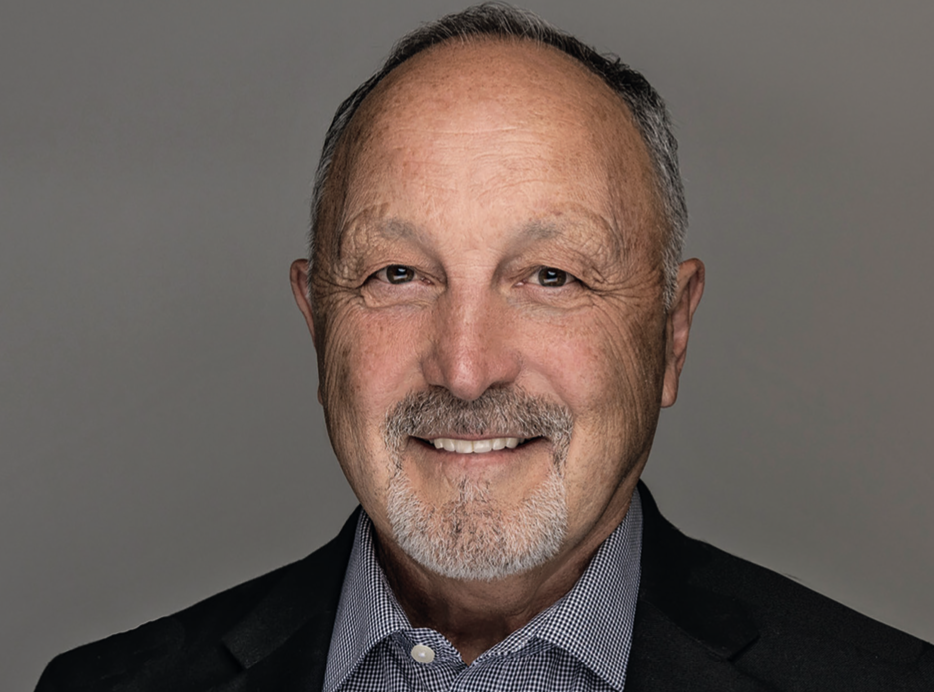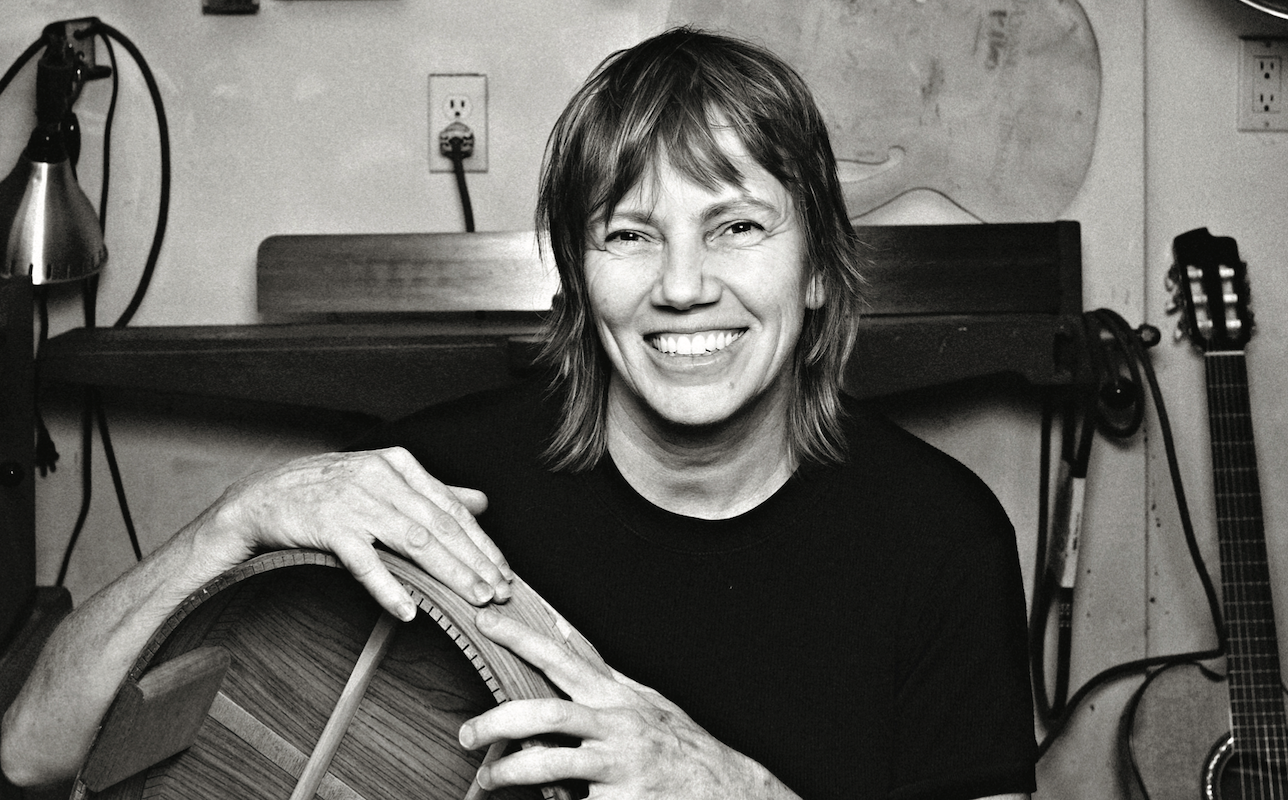The NHL star’s career took him all over, but, he says, in a sense, he never left home
By Peter Feniak
Bryan Trottier grew up on his family’s ranch in the vast grasslands of southwest Saskatchewan, near the tiny village of Val Marie.
“We had no money, but we didn’t know we had no money,” he says. “We thought we were just like everybody else. You know, three square meals a day, everything we needed at our fingertips.”
Trottier, a nine-time National Hockey League all-star, has always treasured the world he first knew. “The big blue sky with wispy clouds, the dry air, the smell of hay and the barnyard—people would come out to the ranch and say, ‘My God, what a great life!’ We had nothing, but, in one sense, we had a quality of life you can’t pay for. Skating on the river, the friends in town, the neighbours, family history, the First Nations…. My roots are deep out there.”
Ranch work is hard and endless. Buzz Trottier told his son early on, “Don’t do a job to get it done; do it to get it done right.” That work ethic—and his inner drive—took the promising hockey player away from home in his mid-teens. At one point, homesick and discouraged, he almost gave up. Instead, he persevered to become an NHL hero who scored 524 goals in a brilliant career. He played in an amazing seven Stanley Cup championships and was honoured again and again for his talent, commitment, and leadership. For all that, he still marvels that “this shy kid from Saskatchewan played in the greatest league in the world.”
The Intangibles
Trottier has long been a low-profile superstar. After he retired as a player in 1994, he spent years coaching and “in the game”; now 66, he says: “I’m done and out of it. I’m pretty much an open book. I’m not as guarded. I’ve got stories to share.” And he does, in his engaging memoir, All Roads Home: A Life On and Off the Ice (McLelland & Stewart, 2022).
There, he recounts his treasured days as a prairie youngster and the roads that led him to incredible success as a professional athlete. Drafted in 1974 by the New York Islanders, he shares the journey of that championship team with pride—the closeness with teammates and the joys, disappointments, and rigours of the hockey life. Beyond the game, his pride as a father of four is obvious, and he treasures the new work he’s found helping Indigenous youth. The book’s dedication honours the parents he cherished: “For Buzz and Mary. I love you. I miss you.”
His mother was Mary Gardner, of Irish descent. Buzz’s forbears (nobody called him by his birthname, Eldon) were Metis, Cree, and Chippewa. Early on, they moved often with their first-born (Bryan, born in 1956) as Buzz worked oil and gas rigs in Saskatchewan and then in road construction in Wyoming, Montana, and South Dakota. Eventually, the young family settled down to take charge of Buzz’s parents’ ranch near Val Marie.
The village, with some 500 residents at the time (the population is down to 120 now), was “surrounded by farmers and ranchers,” Trottier writes. It boasted “three gas stations, a bunch of general stores…a convent, the hospital, a church, and the school…curling [and] skating rinks, a grain elevator, a hotel, and a Chinese café.” The village of Climax, Sask.—and Mary’s parents— was a half-hour drive away. Further up the road was the “big city” of Swift Current (population: 15,000), where young Bryan stepped into the bigger hockey world.
He skated early, on the nearby river or the local rink, wearing men’s skates crammed with cardboard and tissue to make them fit. He began to shine in organized hockey at the age of eight. He was small, but he loved the game.
“I worked hard and I practised a lot,” he tells me, “stick-handling a ball down to the barn to do chores, stick-handling horse turds in the winter-time, taking slap shots at my sister—she’d have a heavy coat on. That all paid off. I could do a little bit of everything. I took a lot of pride in passing, finishing my shots, and hitting the net, creating a rebound. The other thing, the intangibles you can’t practise—the determination, the stick-with-it, the hunger that you can’t teach—they’re just part of who you are.”
Trottier played at a sturdy five feet 11 inches, 200 pounds, in the NHL, but he was a small, skilled skater when coach Stan Dunn invited him to try out with the Swift Current Broncos, the region’s highly respected Junior Team. At 16—and only five foot six—he made the team. But the rough-and-tumble league had plenty of grown players, up to age 20. The “little guy” became a target of hard-hitting opponents. Some tried to goad him into a fight he couldn’t win. Battered, bruised, and homesick, he came home for Christmas determined to quit.
After Christmas, a hockey deadline came. Bryan’s brusque dad told him, “You’re going back!” With a blizzard blowing in, his larger-than-life teammate, Dave “Tiger” Williams, appeared at the Trottiers’ door, sat down for breakfast, and told the talented youngster: “I’m bringing you back. I’ll hog-tie you if I have to.” Bryan wouldn’t budge. But he listened when Buzz offered words softer than usual: “You know, you can always come home.”
“Somehow,” Trottier writes, “those words just made me relax. Somewhere in my brain, I heard: ‘Don’t quit, don’t give up. You can always come home. Give it another shot.’” As they drove off, Williams—two years older and one of the toughest young players in hockey—told the rookie, “Look, I’m going to play on your line…and no one’s going to touch you anymore.”
He meant it. Soon, no one did.
“That was a really unique time in my life,” Trottier says today. “I was scared. And Tiger taught me how to protect myself, how not to be afraid. It was a defining moment. Tiger became the big brother I never had.” (Trottier has four siblings, all younger: two brothers and two sisters.)
As he grew and his skills shone, Trottier, at 18, was a surprise draft choice of the New York Islanders. History beckoned.
In All Roads Home, Williams describes the star player Trottier became: “He was so tough, so sturdy on his feet…great skating ability…his balance, incredible.” And, Williams remembers, “he was so shy as a 16-year-old, always smiling—till the game started. Then that little grin went away and it was always about winning.”
On May 24, 1980, Trottier’s hockey dream came true. Bob Nystrom’s thrilling overtime goal against Philadelphia sent Trottier, not yet 24, and the New York Islanders to hockey heaven. Fans roared, bedlam reigned in Long Island, and the Stanley Cup was carried out onto the ice.
Watching the family’s flickering black-and-white TV back in Val Marie, a young Trottier had been transfixed by the sight of his idol, the great Jean Béliveau of the Montreal Canadiens, hugging the Stanley Cup with reverence. Now it was Trottier’s turn. “That feeling of winning was way better than I could imagine,” he writes, “not just for me, but for my team, for my family, for our fans.”
At that moment, he recalls, over the phone from his home in Pittsburgh, one thought rose above all others: “I want to win again.”
The New York Islanders went on to win an astounding four consecutive Stanley Cups. They are remembered as a “complete team,” with great goaltending (Billy Smith) and defence (Denis Potvin) and powerful forwards (Trottier centred a line with big Clarke Gilles and the flashy scorer from Laval, Que., Mike Bossy: they were called “The Trio Grande”). But as the ’80s ended, with the team in decline, Trottier was released.
He was signed by the Pittsburgh Penguins, and with their great young star Mario Lemieux, Trottier would “hoist the cup” again in 1991 and 1992. (Retiring after the ’93–’94 season, he won another as assistant coach with the Colorado Avalanche in 2001.) He was thrilled to be chosen head coach of the New York Rangers in 2002, but he was fired halfway through the season as his team faltered. “I was devastated,” he says today. Deeply depressed, he sought help and recovered.
Roots
Today, Trottier is remembered as one of the greatest players to compete on the big-league ice—and he’s one of the most respected. His peers elected him to eight terms as president of the NHL Players Association; he generously supported charitable causes. He still plays for charity, in old-timer games organized by his long-time pal Williams and as a key force with the Aboriginal Alumni hockey team, an inspiring group that includes Indigenous NHLers John Chabot, Aaron Asham, Gino Odjik, and Reggie “The Rifle” Leach. They entertain in visits to communities— often remote ones—and share positive messaging for First Nations youth. Trottier remembers coming home from school in tears after being the victim of name-calling, but his parents taught him to be proud of his Indigenous roots. Today, he treasures visits to these communities, “sharing [his] stories and feeling the hospitality and the culture—the laughter, the humour.” Among his messages: “You have to be thick-skinned and know you’re not defined by what other people think; you’re defined by your actions, your work ethic, how you treat people.”
Trottier shared those lessons with his own children—his daughter, Lynsey, and sons Bryan, Jr., Tayler, and Christian. Their dad loves describing their bright, interesting, university-educated lives. Dr. Bryan Trottier, the eldest, is an oncologist in Minnesota. Married and divorced twice, Trottier writes “life isn’t always fair, and it is never anyone’s fault.” The man who was so intense and driven on the ice loves to relax with his kids and grandkids. The likeable athlete might grab his guitar and offer some “classic country” (memories from Buzz’s local band) or tell stories that start with “Did I ever tell you about that time on the ranch?”
“He was an amazing hockey player,” daughter Lynsey writes, “but truly he’s an even better father. He makes it so easy to be proud of him because of the way he handles himself and the way he treats others.”
The great hockey hero has travelled many roads, but, he tells me: “I never left home. I had home in my heart. And every time I achieved something, Val Marie celebrated.”






